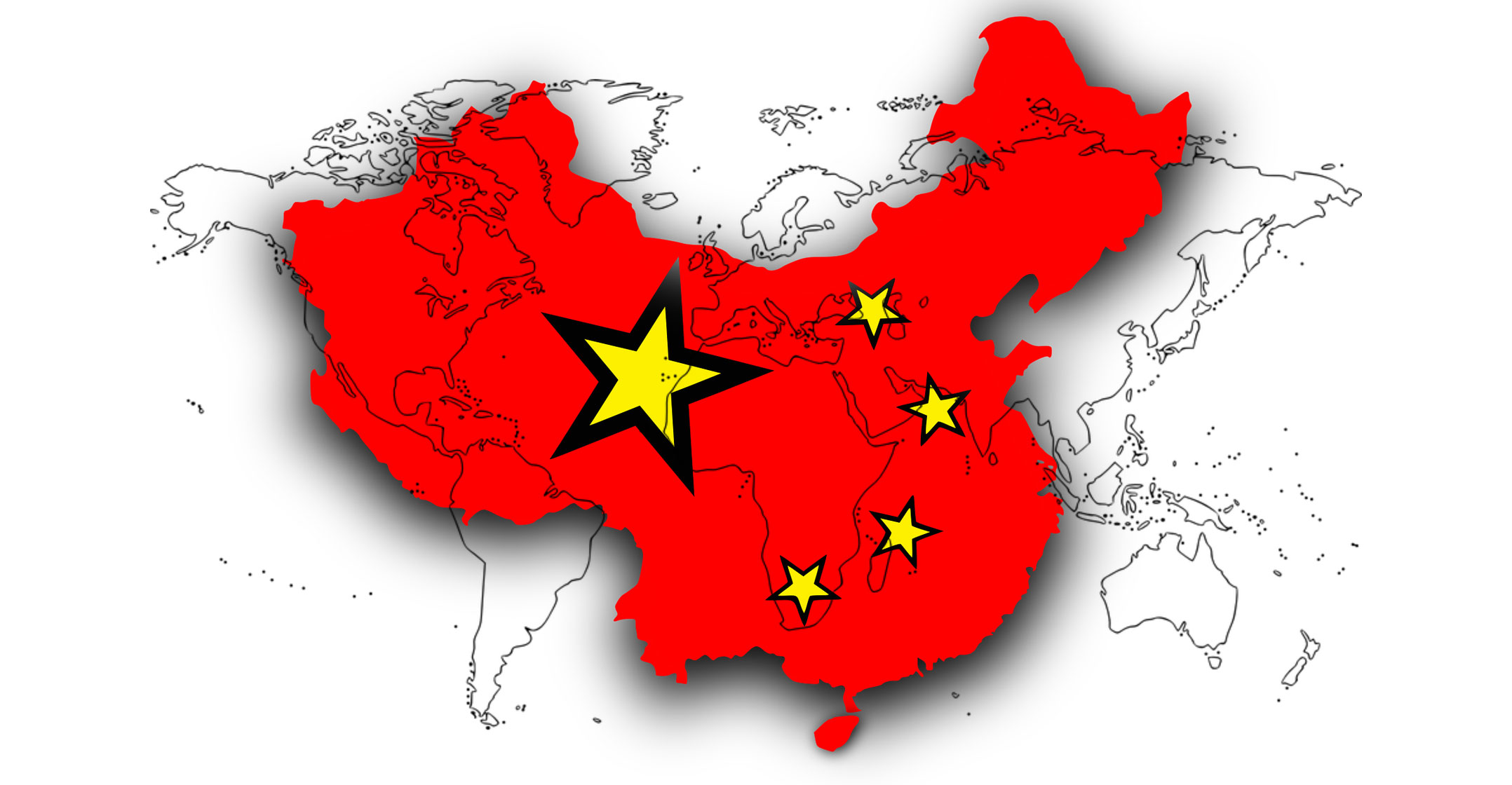 In the race for tech supremacy, China is betting it can seize the lead by building the world’s biggest 5G wireless networks.
In the race for tech supremacy, China is betting it can seize the lead by building the world’s biggest 5G wireless networks.
To get there, the country is banking on the might of the one-party state, making sure its state-run carriers have access to cheap airwaves and fast, inexpensive approvals for putting up the hundreds of thousands of base stations the fastest wireless technology requires.
As top phone companies elsewhere flinch at the cost of building 5G wireless networks, China’s operators are barrelling ahead on the government’s mandate, virtually free airwaves and equipment at less than half the price US carriers are paying. Being the first to reach massive scale with the speediest networks could also help the nation in its ambition to dominate industries like factory automation, robotics and autonomous driving.
“5G is a foundation and catalyst for reinventing industries,” said Paul Lee, UK-based head of research for technology, media and telecommunications at Deloitte Consulting. “The fundamental benefit of being the first mover is that you can build business models on the back of that and export them to other countries.”
South Korea’s wireless carriers were the first to offer commercial 5G services, with SK Telecom launching its network in April and Samsung Electronics already offering a 5G-enabled smartphone. But while US carriers in cities like Minneapolis and Chicago have the beginnings of 5G offerings, it’s in sheer scale where China is on course to edge ahead over the next five years.
That size advantage is also reflected in China’s push to invent 5G technology.
Lead in patents
The country’s biggest companies have already established a lead in patents related to the fastest network technology. Huawei Technologies, the contentious Chinese firm that’s at the heart of current US-China tensions, leads the pack as the world’s biggest telecoms equipment supplier. Meanwhile, ZTE, which has also drawn America’s ire in the past, comes in at number three, according to Berlin-based patent information platform IPlytics.
But that won’t necessarily translate into network domination. China’s three carriers — China Mobile, China Unicom Hong Kong and China Telecom — are all state owned.
Harvard Business School economist Shane Greenstein says having a bigger government role in 5G may not provide an advantage.
“The private firms in China in the digital sector have an admirable record with experimentation,” he said. “The state-owned enterprises? That is a more open question.”
 Where the government is helping is by holding carriers’ costs down. Beijing is providing the bandwidth for 5G networks almost for almost free, said Edison Lee, head of telecoms research at Jefferies Hong Kong.
Where the government is helping is by holding carriers’ costs down. Beijing is providing the bandwidth for 5G networks almost for almost free, said Edison Lee, head of telecoms research at Jefferies Hong Kong.
US carriers, by contrast, bid US$2.7-billion at two auctions of 5G airwaves, according to the Federal Communications Commission. In India, the industry group representing carriers says its members can’t afford spectrum the government expects to auction for about $84-billion this year.
China’s operators will also pay less for base stations. The units will probably cost about $30 000 each in China, less than half the $65 000 average in other developed-economy markets, Jefferies’ Lee estimates. Two of China’s carriers have said they will lease the equipment, cutting the upfront cash outlay to roughly $6 500 each per year, Lee said.
“5G roll-out has picked up pace near-term and exceeded our earlier expectation, driven by government directive and improved Huawei supply,” Kevin Chen and Clint Su, analysts at China Merchants Securities, wrote in a 25 July note. They raised their target for base station deployment through 2020 to as many as 400 000 from 360 000.
In the US, where the government is leaving 5G to companies, carriers will also pay at least five times more than Chinese operators for civil engineering and permits to build 5G, Deloitte Consulting estimates.
The world’s most populous country has about 350 000 5G-operable base stations deployed, nearly 10 times as many as in the US, according to a US department of defence study.
The report says China claiming the position of standard-setter for 5G, with Huawei leading rival telecoms equipment makers, is a risk for the US.
‘Serious security risks’
This “will create serious security risks for DoD going forward if the rest of the world accepts Chinese products as the cheaper and superior option for 5G”, said the report.
Concern about China’s edge prompted President Donald Trump to float a proposal last year for the government to build a secure 5G network, people familiar with the matter said at the time. The idea was dropped immediately after regulators, industry leaders and elected officials immediately pushed back, saying companies were in a better position to move the technology forward.
The idea of China securing that advantage is also stoking concern among competitors beyond the telecoms equipment and wireless services industries.
Chip maker Qualcomm, for example, is urging the US and other Western governments to embrace 5G more rapidly or risk falling behind China in the potentially life-saving technology, which is also used in self-driving cars.
 China will be “saving hundreds if not thousands of lives much sooner than we will as we fumble to determine which is the standard that is best for the long-term road map in the Western world,” Qualcomm senior vice president Patrick Little said in an interview.
China will be “saving hundreds if not thousands of lives much sooner than we will as we fumble to determine which is the standard that is best for the long-term road map in the Western world,” Qualcomm senior vice president Patrick Little said in an interview.
While China’s autonomous driving infrastructure lags behind the US, where firms like Alphabet’s Waymo are streaking ahead in real-world testing, Chinese companies are developing related 5G applications with some established car makers.
ZTE is conducting 5G tests on self-driving cars, and has cooperated with Audi’s China unit to develop “Internet-of-vehicles” technology. In robotics, ZTE is working with Internet giant Baidu and Siasun Robot & Automation to develop 5G applications.
Byton, an electric vehicle start-up based in Nanjing, will release an SUV in China at the end of this year that includes a range of artificial intelligence functions and a roof antenna that offers data transfer rates up to 10Gbit/s.
The benefits of setting 5G standards may also help China outside its borders. President Xi Jinping’s Belt and Road Initiative includes a push for Chinese-built network infrastructure across the length of a route that runs across Eurasia, the Middle East and parts of Africa.
“Developing countries that are more sensitive to cost will find the Chinese 5G price point difficult to turn down, especially when the offer is sweetened with infrastructure and project financing incentives like the Belt and Road Initiative,” the US department of defence report said.
Private sector
For its part, the US is letting the private sector guide 5G development, Federal Communications Commission chairman Ajit Pai said in a June speech to wireless executives in New York.
“For all this talk about our government’s focus on 5G, make no mistake that we are pursuing a market-based strategy to promote 5G development and deployment,” Pai said.
And the US’s crackdown on Huawei, cutting it off from components made by American companies, will be a big test of China’s 5G lead, says Anthea Lai, Asia Pacific media, technology and telecoms analyst for Bloomberg Intelligence.
“Before Huawei’s ban, China had strong potential to lead in standalone 5G,” Lai said. “But now we have to see how much Huawei can keep its carrier business intact,” she said.
“Huawei could slow China down.” — Reported by Sheryl Tian Tong Lee, with assistance from Ed Ludlow, (c) 2019 Bloomberg LP

